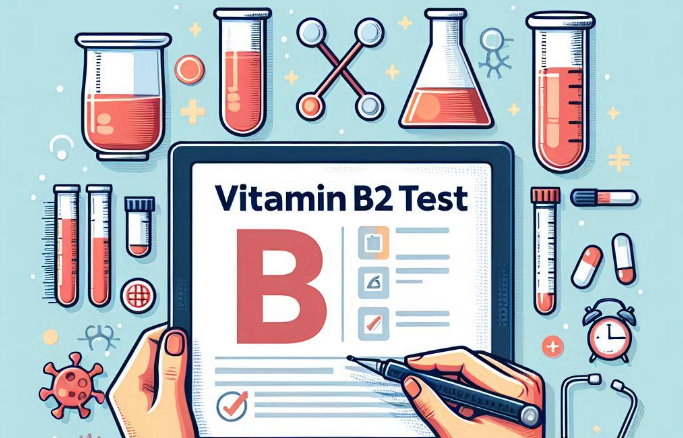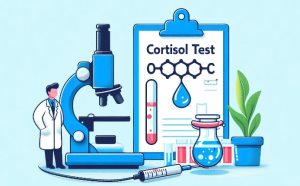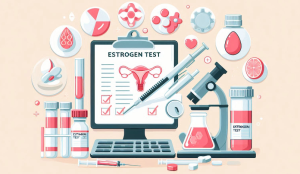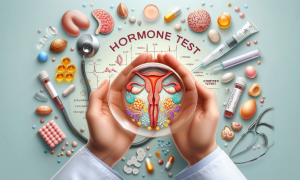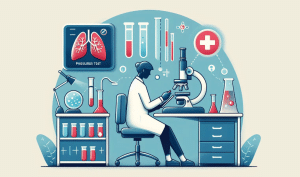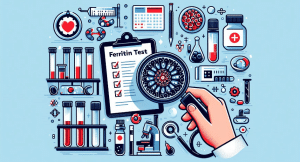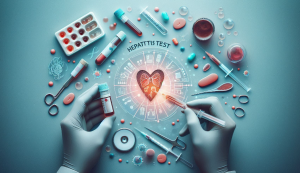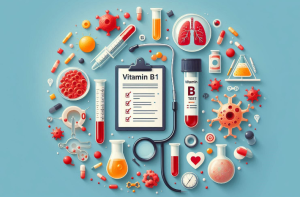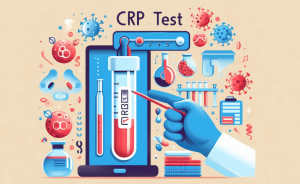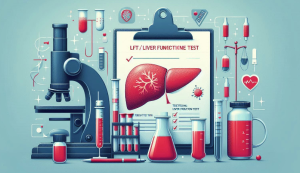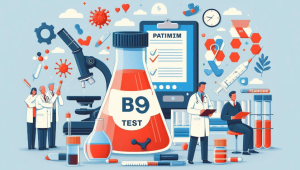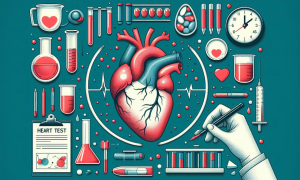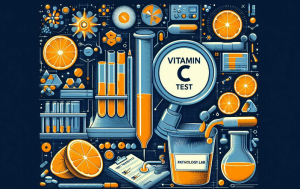What is a Vitamin B2 Test/Riboflavin Test?
A Vitamin B2 Test, also referred to as a Riboflavin Test, measures the level of riboflavin (Vitamin B2) in your blood or urine. Riboflavin is a water-soluble vitamin that plays a crucial role in energy production, cellular growth and repair, and maintaining healthy skin, eyes, and nervous system.
Why Do You Need a Vitamin B2 Test/Riboflavin Test?
A healthcare provider might order this test if they suspect:
- Riboflavin deficiency: Symptoms like fatigue, cracks at the corners of the mouth, sore throat, swollen tongue, or skin inflammation could indicate a deficiency.
- Malabsorption disorders: Conditions affecting nutrient absorption might warrant this test.
- Monitoring riboflavin supplementation: Individuals taking high doses of riboflavin supplements may require periodic monitoring.
- Assessing certain medical conditions: Riboflavin levels can be affected by conditions such as liver disease, kidney disease, or certain cancers.
What Does a Vitamin B2 Test/Riboflavin Test Measure?
This test directly measures the concentration of riboflavin in your blood or urine. Indirectly, it can reveal:
- Riboflavin status: Whether you have sufficient, deficient, or excessive levels of Vitamin B2.
- Potential health risks: Riboflavin deficiency can impair various bodily functions and increase the risk of certain health problems.
- Underlying conditions: Abnormal levels might signal issues with nutrient absorption or other health concerns.
Preparing for the Test
Generally, no specific preparation is needed for a Vitamin B2 test. However:
- Fasting: Some labs might require fasting for a certain period before the blood test, so check with your healthcare provider.
- Medications: Inform your doctor about any medications or supplements you are taking, as some might affect riboflavin levels.
Understanding the Results
Normal riboflavin levels typically range between 2.1-9.6 mcg/dL in blood. The interpretation can vary depending on the lab and individual factors.
- Low levels (deficiency): This might lead to symptoms like fatigue, skin problems, sore throat, and other complications.
- High levels: Excess riboflavin is generally excreted in urine and rarely causes any problems.
- Normal levels: Indicate adequate riboflavin status.
Risk Factors and Prevention
Factors that increase the risk of riboflavin deficiency include:
- Poor diet: Diets lacking in riboflavin-rich foods like milk, yogurt, eggs, leafy green vegetables, and whole grains can lead to deficiency.
- Malabsorption disorders: Conditions affecting nutrient absorption can impact riboflavin levels.
- Alcoholism: Chronic alcohol abuse can interfere with riboflavin absorption and utilization.
- Certain medications: Some drugs might affect riboflavin levels.
Prevention and management focus on:
- Balanced diet: Include a variety of riboflavin-rich foods in your diet.
- Supplementation: If dietary intake is inadequate, your doctor might recommend riboflavin supplements.
- Addressing underlying conditions: Treating any conditions that contribute to deficiency is essential.
- Limiting alcohol intake: Moderation or abstinence from alcohol is crucial for maintaining adequate riboflavin levels.
Remember, maintaining optimal riboflavin levels is essential for good health. Regular check-ups and following your healthcare provider’s advice are vital, especially if you have risk factors for deficiency
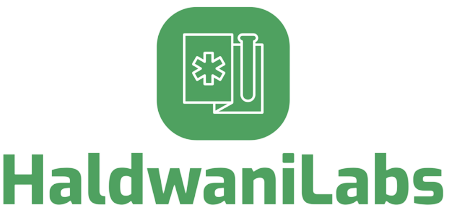
 7351982473
7351982473